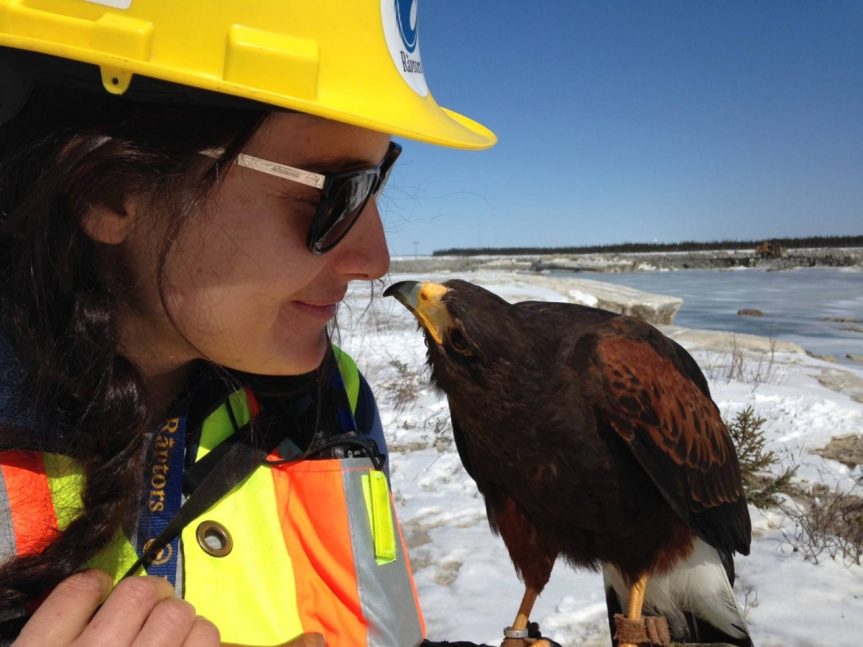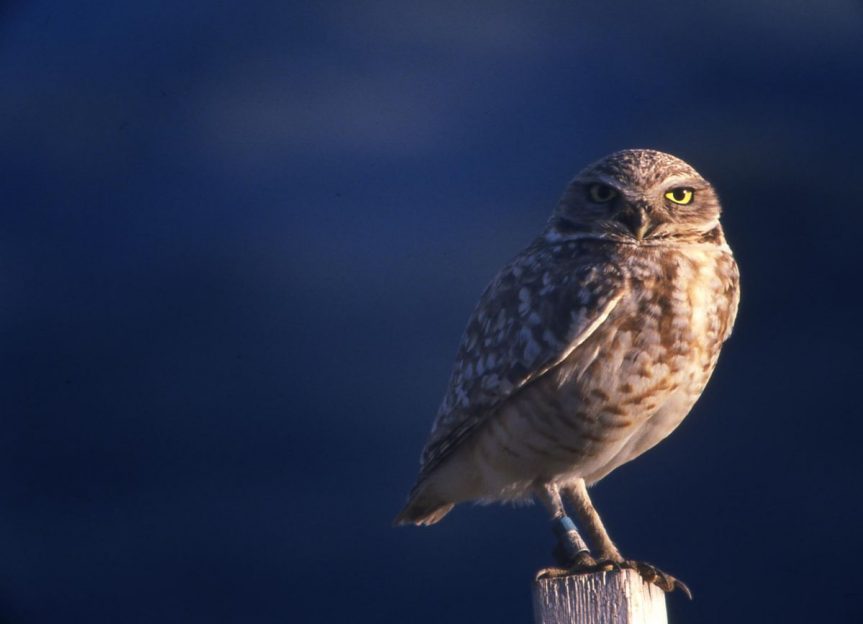Jessica Baynton – “Island Raptors: the science and art of falconry”
by Andrew Bryant, 20 April 2017.
Jessica Baynton has one of those weird and wonderful jobs that us mere mortals can only marvel at. As a biologist employed by The Raptors, she spends her days flying various birds-of-prey. Yes, you read that correctly.
Using gloves, twine, whistles, radios, and traditional skills from the age-old practice of falconry, Jessica works to keep birds away from aircraft…by flying her birds.
She’s mostly involved with Vancouver International Airport (YVR), although her particular skills have also taken her (and birds) to remote industrial locations across Canada. It matters. Because birds and aeroplanes sometimes don’t play nice – ask Captain Sullenberger.
Jessica spoke about the long history of falconry, and how that particular hunting technique/sport/hobby/status symbol has changed over time. What hasn’t changed, as Jessica explained, is that falconry relies on sensitivity, non-verbal communication, and trust.
Falconry works, and has become an increasingly useful tool in the arsenal of wildlife management. Thus, people who keep track of such things report that “bird strikes plummet at Vancouver Airport” – and passengers are safer as a result.
Jessica’s talk was, of course, a preamble to meeting Tuari, an 8 year-old Harris’ hawk. It’s not her hawk, of course…except it is…kind of…
…and together they certainly commanded our attention!




















